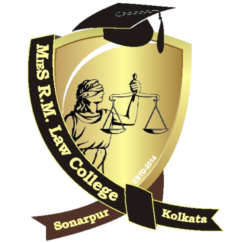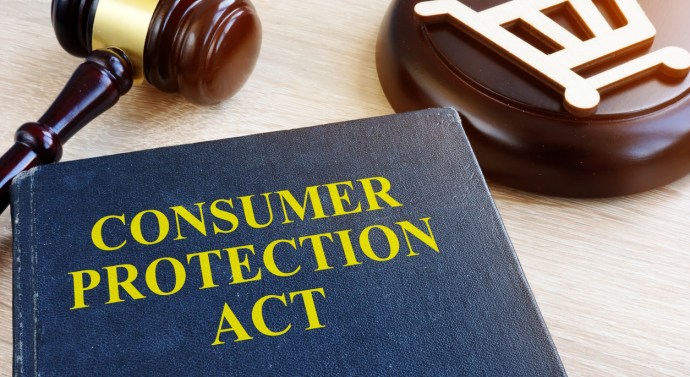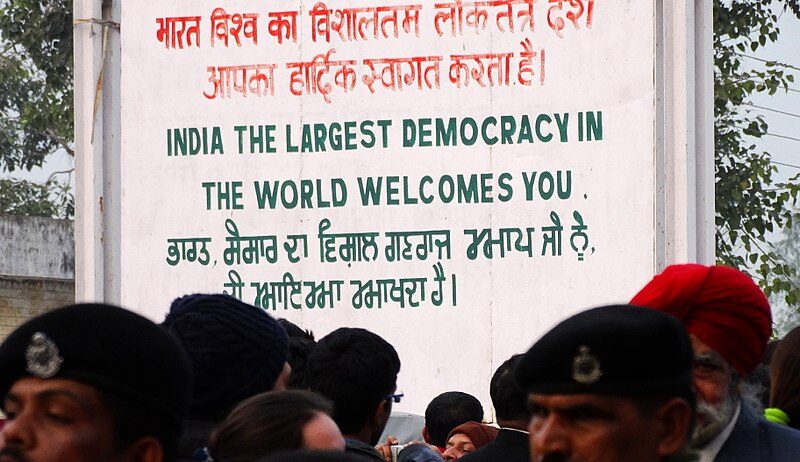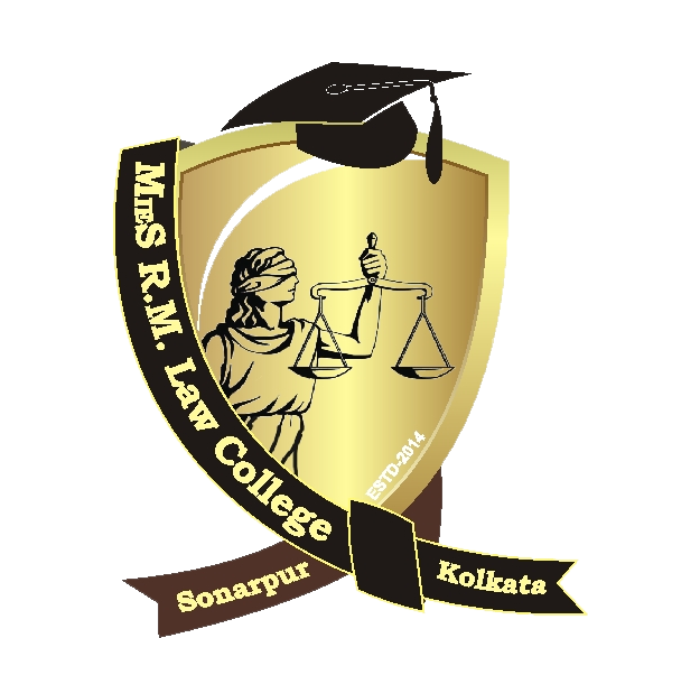ChatGPT and Artificial Intelligence in India1
An article on “ChatGPT and Artificial Intelligence in India” has been written by Aritra Dasgupta a student of MIES R M Law College, which is an excellent law college in West Bengal. MIES R M Law College is one of the best law schools in Kolkata, situated at Sonarpur, South Kolkata. MIES R M Law College, Kolkata has completed many years of its glorious journey in the field of law education. This College is one of the best law education providers in India. MIES R M Law College is one of the topmost renowned Law Colleges in India under Vidyasagar University and approved by the Bar Council of India.
ChatGPT and Artificial Intelligence in India
The year 2022 marked a fresh and ingenious beginning for the field of artificial intelligence (AI) in India. The technology was re-introduced in a more comprehensible and useful form to the public. The most recent development of AI was the introduction of an easily installable digital application, Chatgpt which acted as a chatbot for people in need of information.
PROBLEM:-
One of the major problems faced by this innovative application is the usage of the user’s data to fulfill the satisfaction of his search. This further results in the usage or circulation of copyrighted materials and information of various authors to provide an appropriate result to the user which in turn is achieved by also accessing the user’s personal data. This results in a potential threat to the user’s privacy and also to the intellectual property rights of the various individuals, who own the copyrights of the various material data accessed by the bot.
SOLUTION:-
At present, to protect the users of Chatgpt from the illicit action of infringers, the Companies, and Organizations using Chatbot must cater to the obeyance of various Statutesdealingwiththeprotectionofpersonaldataofindividualsnamely, the Information Technology Act 20002, Information Technology (the Amendment) Act 20083, Information Technology (SPDI) Rules 20114, National Cyber Security Policy, 20135. Also, the Indian Government has published the recent draft of the DigitalPersonalDataProtectionBill,20226on 18th November 2022 which after its action will specifically deal with the protection of similar specific Artificial Intelligence laws in India.
- 1Aritraa Dasgupta, Student of 6th Sem of MIES RM LAW COLLEGE, SONARPUR
- 2The Information Technology Act 2000, No. 21, Acts of Parliament, 2000, (India)
- 3The Information Technology (Amendment) Act 2008, Acts of Parliament, 2008 (India)
INTRODUCTION of ChatGPT and Artificial Intelligence in India:-
The term “Artificial Intelligence” as defined by American Computer Scientist John McCarthy is a scope dealing with the understanding of Machines and their ability to react to certain instructions given by man. Artificial Intelligence aims to make machines perform human-like tasks such as visual sensing and identification, verbal sensing and identification, decision-making, and translation of different languages. It also embodies technologies like machine learning and understanding, natural language processing, robotics as well and machine vision.
Currently, India has no specific Laws regulating Artificial Intelligence in India. This article explores the current atmosphere regarding Artificial Intelligence in India, and the need for the required Artificial Intelligence Laws, particularly for the provisions related to Data Security and privacy policies of the users, in recent developments of AI Chat Bots like ChatGPT. There have been many important developments in the field of Artificial Intelligence. Nowadays Artificial Intelligence is also serving various purposes in the field of law. Some of them are as follows:-
Legal Discovery And Document Analysis –
Document analysis is a vital part of the discovery phase of litigation in which attorneys handling the case determine which of the existing legal precedents or what kind of language might sharpen their stand in the arguments. ROSS Intelligence, Kira Systems, Case Text, and others all want their research platforms to be the go-to AI tool in this area, as analyzing documents is time-consuming work for attorneys, paralegals, and legal clerks
Divorce Proceedings and Settlements– Here AI helps couples by making them fill out a questionnaire regarding subtle details of the circumstances. AI products from companies like Amica, Penda, and Wevorce then call on databases of previous divorce cases to recommend amicable solutions.
- 4Information Technology (Reasonablesecuritypracticesandproceduresandsensitivepersonaldataorinformation) Rules, 2011; Notification of Ministry of Communication and Information Technology, 2008 (India)
- 5NationalCyberSecurityPolicy,
- 2013,https://www.meity.gov.in/writereaddata/files/downloads/National_cyber_security_policy-2013%281%29.pdf
- 6TheDigitalPersonalDataProtectionBill, 2022; (2022)
- Fraud Detection And Prevention – Most banks nowadays fall prey to fraud and when complained about the same, most of the investigations take too long to reach a conclusion mostly delivering false positives, which is why AI is a promising addition to this area of law. Detecting fraudulent activity often comes down to comparing events with past transactions, patterns, or records. AI can do this quickly.
- Drafting And Reviewing Contracts – Legal experts often take days or weeks to analyze a particularcontractforerrorsorimprovements.InsuchcircumstancesAItoolscandothesame work in a fraction of the time. Companies like Lawgeex, LexCheck, Leverton, Clearlaw, and others are applying AI to contract creation and vetting.
CHATGPT:-
ChatGPT standing for Chat Generative Pre-Trained Transformer is one of the recent developments in artificial intelligence. This is a search engine designed by the Company called ‘Open AI’. On November 30, 2022, the company called Open AI announced the launch of this unique search engine. ChatGPT, utilizing this large language model known as the Generative Pre-trained Transformer can emulate a human-like conversational style when generating text. This vast accessibility of ChatGPT comes with a vast database of knowledge, so much so that ChatGPT completed MBA exams posted by the Professor of Wharton School of Business, thus implying that the application could have attained the degree without any hassle.
Owing to such a proven genius of the App, certain users sought to reignite the concerns pertainingtothewaysinwhichChatGPTwasaccessingandproducingthisinformationalong withtheamountofpersonalinformationthatthebotwasaccessingtobringthe‘bestpossible’ outputs for a particular user.
PROBLEMS FACED BY CHATGPT:-
The question about the infringement of copyrights or other intellectual property in the case of the use of Chat GPT is two-faceted. It is undeniable that the artificially intelligent application has to attain the needed information from some source and that it simply studies the behavior of the user based on such information, to generate the most favorable output for them, but the problem persists in the issue as to the extent to which the application avails personal information of a user to generate the most appropriate output for them. Thus any usage of such gathered information may, in turn, lead to the user being prone to various actions of infringement by budding potential infringers.
This fact is further proven by clause 3 of the Terms of Use published by Open AI, which mentions that owing to the nature of machine learning, the output may not be ‘unique’ for every single user.Thischaracteristicisessentialforacopyrightablework.Itisalsotobenotedthatthe company is well aware of the possibility of any infringement that can arise in such cases and has provided a clause stating that upon being notified about any such infringement, it may delete or disable the content in question.
Intellectual property issues are the right of Chat GPT
Another aspect of intellectual property issues is the right of Chat GPT. The information originally sourced by the chatbot has been specifically mentioned to be a property of Open–AI, the illicit use of which may again expose the user to infringement actions by the company. While the policy does not specifically provide actions about copyright infringement of Chat GPT, it restricts the user from using the services in a way that may infringe, misappropriate, or violate the rights of any person. These circumstances, thus, give a conclusive inference to the fact that, wherein the users have been utilizing the outputs for writing their essays or even work emails, they may be prone to legal action by the company, by the policy.
Contrary to the policy, India and the majority of other foreign legislations are yet to protect artificial intelligence or other self-generated computer programs under the law. In India, the Copyrights Act, of 1957 provides specific provisions for the protection of computer programs, separately from the protection of original literary, artistic, musical, or dramatic works. However, a provision relating to the protection of the literary, artistic, musical, or dramatic works, created by a computer program is yet to be included in such provisions.
Jurisdictions
In fact, under certain jurisdictions, including that of the United States of America, a copyright can only be registered by a human being. Even otherwise, the universally accepted works eligible for ‘copyright protection’ in accordance with the definition given by the World Intellectual Property Organization include literary and artistic creations, such as books, music, paintings, sculptures, films, and technology-based works (such as computer programs and electronic databases), wherein such technology-based works are ones which may be created by human beings.
Here are some of the several potential legal risks that may arise while using ChatGPT:
- Copyright infringement: ChatGPT is programmed on a large scope of textual data, and the content it generates may be similar to existing copyrighted material.
- Privacy: ChatGPT may be used to generate content that includes personal information, which could be a violation of data protection laws.
- Misrepresentation: ChatGPT may generate content that can misrepresent a product or service, which could lead to legal issues.
Although concerns regarding the amount of information that ChatGPT collects exist, users continue to voluntarily provide information to ChatGPT for various purposes, including their need to obtain the required information or the need to obtain answers to simply test the application.
AI LAWS IN INDIA:-
Data protection aims to prohibit interference in one’s privacy caused by the gathering, storage as well and circulation of personal data. Personal Data means the information used to identify, specify, or recognize an individual, who owns the information, irrespective of the fact that it is collected by the government or by any private individual. Although the Fundamental Right to Privacy has not been granted expressly by our constitution yet the Indian judiciary has interpreted the Right to Privacy as an integral part of other fundamental rights embodied in the Indian Constitution and has included the Right to Privacy within the ambit of the Right toLife7underArticle218. But, unlike the European Union’s GDPR9, India
- 7Justice K.S. Puttaswamy (Retd.) & Anr. Vs Union of India & Ors, AIR2017SC 4161
- Does not have personal data protection legislation yet. Current, legislations in India, that provide some protection include:
- TheInformationTechnologyAct200010
- Information Technology (Amendment) Act 200811
- Information Technology (SPDI) Rules 201112
RECENT SCENARIO OF AI ISSUES IN INDIA:-
Recently the Competition Commission of India (CCI) initiated suo moto proceedings against Meta Inc for updating the terms of use of its messaging application ‘Whatsapp’ and allowing the sharing of user data across Facebook Inc. The CCI in this case titled ‘In Re: Updated Terms of Service and Privacy Policy for Whatsapp Users13, held that WhatsApp was in contravention of the law.
Subsequently, Meta Inc. challenged this order before the Hon’ble High Court of Delhi, and then before the Hon’ble Supreme Court of India14, wherein, both the High Court of Delhi and the Supreme Court of India, upheld the decision of the CCI. Recently in the case of Karmanya Singh Sareen & Anr. vs. Union of India & Ors15., in order to fight for the legal validity of its privacy policy, Meta Inc. also claimed that owing to the pendency of the Draft Data Protection Bill, the judgment of the Hon’ble Supreme Court in the 2016 case must be put on hold. Hence the matter, being sub judice, is yet to determine the fate of the data possessed by the people of India.
Attribute
- 8INDIAN CONST. art.21-No person shall be deprived of his life or personal liberty except according to procedure established by law.
- 9Regulation (Eu) 2016/679 of The European Parliament and the Council; No.27, The European Parliament, 2016 (European Union)
- 10The Information Technology Act2000, No.21, Acts of Parliament, 2000, (India)
- 11The Information Technology (Amendment) Act 2008, Acts of Parliament, 2008 (India)
- 12Information Technology (Reasonable security practices and procedures and sensitive personal data or information) Rules, 2011; Notification of Ministry of Communication and Information Technology, 2008 (India)
- 13In Re: Updated Terms of Service and Privacy Policy for Whatsapp Users, Suo Moto Case No.1 of 2021.
- 14WhatsAppLLC&Anr.vCompetitionCommissionofIndia, LPA163/2021&CMAPPLs.15908/2021, 16893/2021, 18800/2021, 18910/2021, 46058/2021, 46059/2021, 46655/2021.
- 15Karmanya Singh Sareen & Anr.vs.Union of India & Ors, SLP(C) 804/2017.
SOLUTION of ChatGPT and Artificial Intelligence in India:
ChatGPT like any other AI Application, as of now, needs to comply with the aforementioned set of regulations, namely the Information Technology Act 200016, Information Technology (Amendment) Act 200817, and Information Technology (SPDI) Rules 201118 in order to protect the interests of the users against the infringement of their data. Also as far as Cyber Security in India is concerned, organizations that are using ChatGPT at present must obey the provisions of the National Cyber Security Policy, 201319.
Among the recent developments, in November 2022 almost around the same timeline as the announcement of the ChatGPT by Open AI; the Indian Government also published the recent draft of the Digital Personal Data Protection Bill, 202220 on 18th November 2022. Therefore, in the absence of any specific Artificial Intelligence laws in India, we are left with the action of the Digital Personal Data Protection Bill, 2022; to implement the required data privacy in India and to also follow the provisions of the aforesaid Statutes.
References:-
ChatGPT and India’s Artificial Intelligence Laws: A Comprehensive Overview (ksandk.com) The Revolutionary ChatGPT And Its Legal Policies-PrivacyProtection-India (mondaq.com) Artificial Intelligence (AI) in Law & Legal Industry | Datamation
ChatGPT And Its Effects On The Legal Industry | LinkedIn
—— ARITRAADASGUPTA
6TH SEM, BATCH–A6 SECTION–A, ROLL–24
- 16The InformationTechnologyAct2000, No. 21, Acts of Parliament,2000,(India)
- 17The Information Technology (Amendment) Act2008, Acts of Parliament, 2008 (India)
- 18Information Technology (Reasonable security practices and procedures and sensitive personal data or information) Rules, 2011; Notification of Ministry of Communication and Information Technology, 2008(India) 19National Cyber Security Policy,
- 2013,https://www.meity.gov.in/writereaddata/files/downloads/National_cyber_security_policy-2013%281%29.pdf
- 20TheDigitalPersonalDataProtectionBill, 2022; (2022)
MIES R M Law College is one of the law colleges in south Kolkata which provides three-year LL.B degree courses. MIES R M Law College (Under the MIES R M Foundation Trust) has a highly qualified and competent team of faculty, enormous world-class infrastructure, and facilities most conducive to academic pursuit, along with its remarkably successful campus placements along student-friendly environment. We take extra care for our academically poor students. This is one of The Top Law colleges in West Bengal.





